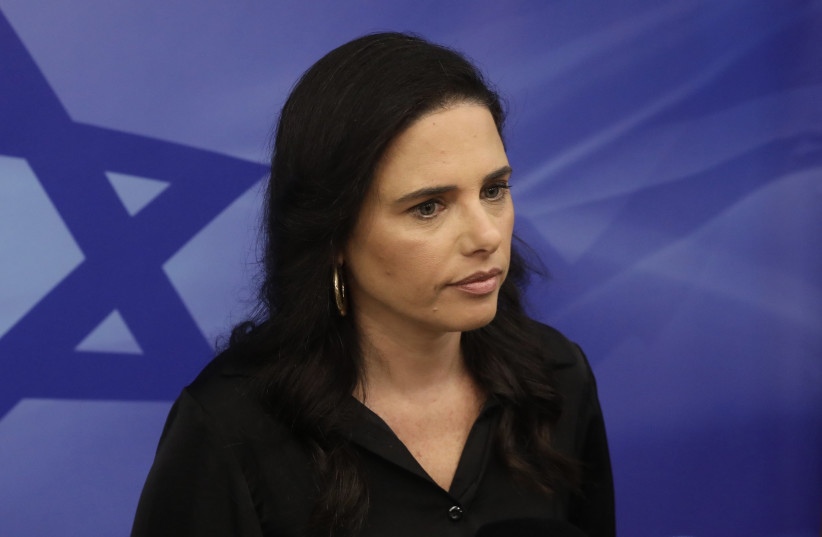Two months ago, I released a three-part series on a new vision – Israel as a Jewish, democratic, and secure state. I placed a special emphasis on the emergence of the New National Camp (NNC). Current events have people wondering if the NNC is in crisis. This piece will address the challenges and opportunities afforded by recent events.
The major critique I received on my NNC series is that I wrote over 3,500 words without once mentioning Benjamin Netanyahu. Some were genuinely baffled that a political conversation beyond the “Yes”-Bibi or “No”-Bibi question was even possible. The frequent follow up questions I received were on coalition building or back to Netanyahu himself: Who should be ruled out of the next coalition? Ben-Gvir? Smotrich? Ra’am? The Joint List? How about the law to prevent Netanyahu from running? What about the trial?
This has been the biggest challenge and obstacle for this vision or any vision during the end of the Netanyahu era. Many Israelis define their identity based on Bibi – “Yes” or “No.” For many people, once each politician has given their answer on the Bibi question, there are no additional relevant political positions or opinions of interest. Voters have become obsessed with the pro/anti argument and the strategic voting horse race.
This challenge is also an opportunity. Israelis are sick and tired of the recent election cycle, as we go to our fifth election in three years over the same question that keeps resulting in deadlock. There are Israelis who dream of something bigger.

Dreaming of something bigger
There are Israelis who noticed that a different security approach has led to better results with Iran, Syria and Lebanon. There are Israelis who discovered this was the quietest year in the Negev and along the Gaza border since Ariel Sharon’s disengagement in 2005. There are Israelis who observed that the special relationship with the United States is back on track and that we have enhanced our relations with our moderate Arab neighbors.
There are Israelis who became aware of the economic growth factors, the declining unemployment, low inflation and a deficit that has been reduced practically to zero. These success stories and more are thanks to the outgoing government and, to a great extent, the parties that comprise the NNC.
As prime minister, Naftali Bennett led the NNC. Following his resignation, there was a scramble of the three parties making up the NNC to distinguish themselves from each other. Yisrael Beytenu leader and Finance Minister Avigdor Liberman made the decision to focus on an economic campaign.
NEW HOPE leader and Justice Minister Gideon Sa’ar decided to join forces with Blue & White leader and Defense Minister Benny Gantz. At the formation of the new joint ticket, Gantz announced he was “establishing the home of the stately Center.” Sa’ar chose to move to the center, instead of remaining in the middle, and Lieberman decided to ignore non-economic issues.
Bennett did not merge Yamina with an existing party and chose to name Shaked as his successor, keeping the party firmly on the right. Those who have believed in Bennett’s path as leader of the NNC will appreciate the wisdom in this decision. Right-leaning voters will be unlikely to vote for Gantz, even with Sa’ar and Elkin on the list.
They are also unlikely to vote for Liberman, who is hiding from his right-wing credentials. Today, Shaked remains the only party leader in the Knesset who is still committed to the idea of the NNC, balancing the three critical components of Israel in the middle of the Jewish, democratic, and secure triangle.
Following Bennett’s departure, the strength of Yamina’s ticket is yet to be determined. Interior Minister Ayelet Shaked, Deputy Religious Services Minister Matan Kahana, Deputy Minister in the Prime Minister’s Office Abir Kara, MK Shirly Pinto, former and incoming MK Yom Tob Kalfon and myself, as the Anglo candidate, is a good start. Perhaps what is needed to complete the picture is a reunification of those loyal to the NNC in this Knesset under one list, such as those who objected to the Gantz-Sa’ar merger: New Hope MK Sharren Haskel, and Derech Eretz MKs Yoaz Hendel and Zvi Hauser. Other high-caliber candidates will surely be considered, as well.
Many Israelis find themselves in the middle and not in the center. They are looking for someone who is not currently on trial, like Netanyahu, or a Kahanist, like Ben-Gvir, nor someone who keeps running to meet Abu Mazen, like Gantz, or a party that has zero right-wingers on their list, like Lapid. These voters are looking for a new New National Camp to vote for. As of now, Yamina is the only party that meets those criteria. Shaked must present a list that reflects this.
The vision of Israel as a Jewish, democratic and secure state is still achievable. Shaked’s task is to lead the NNC through this election, so it can live up to its potential in the post-Netanyahu era.
The writer currently serves as the Knesset faction director for Yamina and was a candidate on the Yamina list for the 24th Knesset election.
